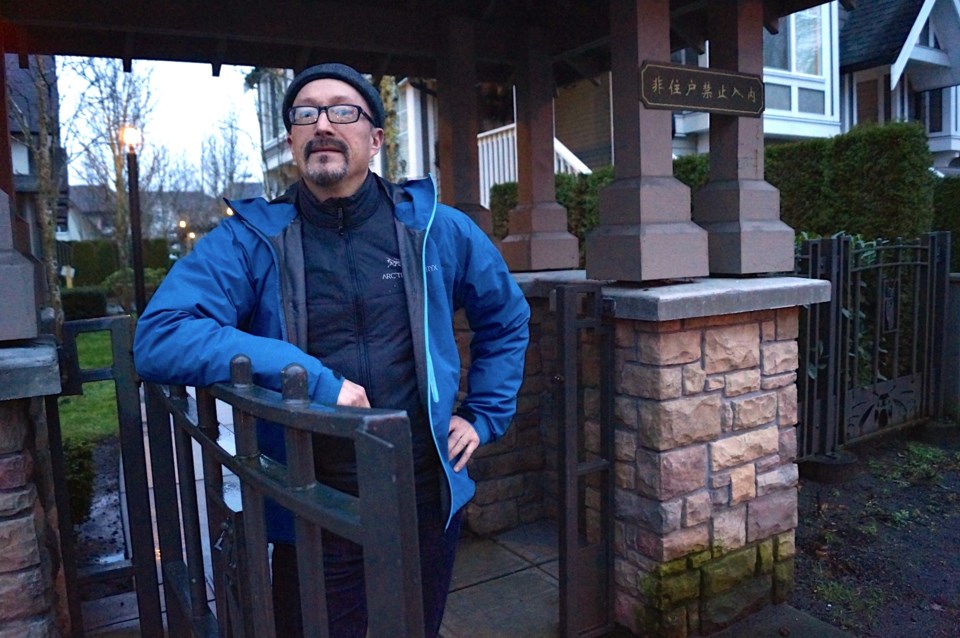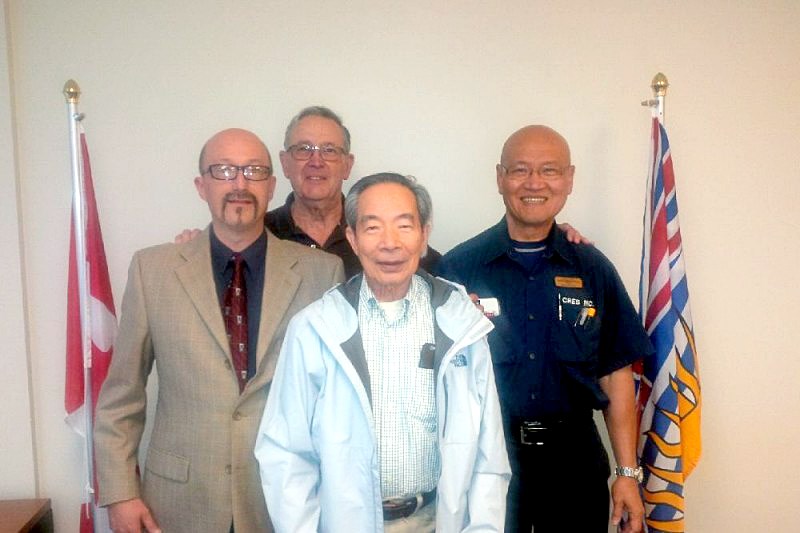A high-profile case of alleged racial discrimination in Richmond is set to be heard by the B.C. Human Rights Tribunal this October.
“The outcome affects the future of English as an official language, and our Canadian cultural identity,” complainant Andreas Kargut, now a former Richmond resident, told the Richmond News.
Kargut and up to nine other households allege Mandarin-speaking strata council members at Wellington Court discriminated against non-Mandarin speakers by holding meetings, including its July 2015 Annual General Meeting, in Mandarin only.
After a number of meetings were conducted in Mandarin and no resolution came from discourse between the two sides, Kargut filed a tribunal complaint in December 2015.
This month, tribunal member Devyn Cousineau sought to clarify Kargut’s claim by technically classifying the claimants as a group of people rather as a class of people. As such, Kargut must list the claimants — some of whom have moved, including Kargut — by June 30 for the tribunal to proceed.
Cousineau said Kargut’s allegation falls under the category of discrimination on the basis of race, ancestry, and place of origin, in violation of section 8 of the Human Rights Code.
Since then the strata council and Kargut’s group have been in a stalemate. Kargut claims that in the 2016 AGM a motion to continue using a certified and independent translator in all meetings going forward was defeated.
Kargut is fundraising money to pay for the costly legal expenses.

“We are still looking for someone who would be interested in helping us fund this,” said Kargut, citing legal cost estimates of $50,000.
“This ordeal has ruined a once great neighbourhood. This issue also destroyed our ability to live together respectfully in a multicultural environment. We want to be living in a place where neighbours respect each other’s culture and language and not discriminate by majority,” notes Kargut on GoFundMe.com.
“We believe that, as Canadians, it is important for Canada's official languages to be used as the principle part of communication no matter the case of a strata corporation or a global Canadian company.”
In September 2016 the council responded to Kargut’s “falsehoods” in a letter to the News, claiming English translation services were offered and adding:“The council remains a group that speaks Mandarin as its first language, which reflects the group of owners and the multiculturalism of Canada.”
The case is unique in so much that ethnic Chinese people are a visible minority in Canada but a majority in Richmond (52 per cent). And, 11.2 per cent of Richmond residents cannot communicate in English — by far the highest rate in Canada.
The case was approved for a hearing last December by tribunal member Walter Rilkoff: “Where it occurs, discrimination by the minority against members of the majority group is no more acceptable just because that group has obtained a majority in a particular enclave.”
The strata told the tribunal that it needed to speak Mandarin only because its members were all Mandarin-speaking and some didn’t speak English.
Wrote Rilkoff: “Wellington Court is not, and cannot be, a closed community open only to people of one ethnic group. Any owner is free to sell their unit to anyone and anyone is entitled to purchase a unit. That buyer in turn is entitled to meaningfully participate in the Strata’s governance.”
The tribunal will explore such matters at the October hearing.
B.C. has no language laws on its books, but Canada’s two official languages are English and French.
Kargut said he initially had the verbal support of his then MLA, Linda Reid, to change the Strata Property Act to require English in council meetings.
“When I first met with her she agreed changes need to be made. The Strata Act was revamped in 2014 and language wasn’t part of that. Linda Reid told me it wasn’t a matter of if a Caucasian person would file a case against Mandarin speakers, it’s a matter of when. That’s what she said. In other words, this kind of stuff is happening all over Richmond,” said Kargut.
But when the News asked Reid in December about changing the Act, she said it wouldn’t be necessary and Wellington Court is an isolated incident.
“It didn’t require it and we have no other ongoing complaints at the present time, so we’ll work our way through that process,” said Reid, nevertheless noting that “to be a non-Asian speaker and have the meetings conducted in Chinese puts you at an enormous disadvantage.”
Prior to the May 2017 election Reid was Speaker of the House and said she must remain neutral on matters. During the campaign she touted in ads she was “proud of our international city.”
Her then NDP counterpart Coun. Chak Au suggested translation services (for either party) be available under law.



